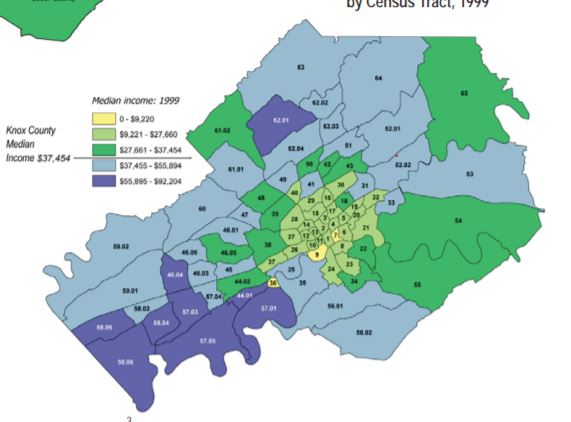I've seen on the news people stabbing each other for a 30% discount on a kitchen aid around this time of year.
A kitchen-aid.
What if I told you I could save you 30% off your life?
Yeah - your life.
Today I'm sharing with you the cost of living in Knoxville Tn.
One of the best parts about living in Knoxville - and in fact the reason my dad moved my family here from Maryland. It's about 19% cheaper than the national average.
Today, I'm sharing with you the cost of living in Knoxville. We're going to talk about home values, average rent compared to a mortgage payment, healthcare costs commute, gas, education, and we'll compare that to the national average for a base.
Now, quick disclosure - my information is coming from various data sources online and most of it is from 2017 or earlier. If you want an accurate market update for Knoxville, check out my market update for the month of December in Knoxville by clicking HERE.
Okay, now...let's get into the numbers.
Let's start with a little summary of my great city.
According to Data USA, In 2017, Knoxville, TN had a population of almost 700k people with a median age of 40.5 and a median household income of $51,848. Between 2016 and 2017 the population of Knoxville, TN grew by 1.01% increase and its median household income grew 3.98% increase.
Also, the population numbers I'm using are a combination of both county and city numbers rounded up by about 20k. Knoxville - the city - has a population of about 187k while Knox county has almost 500k.
The median property value in Knoxville, TN is $169,200, and the homeownership rate is 67.7%. Most people in Knoxville, TN commute and the average commute time is 23.2 minutes. The average car ownership in Knoxville, TN is 2 cars per household.
So that's a brief but let's dig a little deeper.
The median home value in Knoxville as of 2017 was around $170,000. The national average is $225,000. Now the home value has been rising by 8% year over year so that's actually higher now but the difference between our area and the national average is still 28% lower than the national average.
The average rent for this area is around $780 a month. Nationally, the average rent is twice that at over $1400 a month.
- Here's the thing for you renters - for around $250 more you could own a single-family detached house. No more sharing walls, no more giving your hard-earned money to a landlord's retirement fund.
Okay, back to the numbers.
Utilities in Knoxville are 10% lower than the national and a little trivia - the largest energy supplier in the southeast is the TN Valley Authority - or TVA - was est. during the Great Depression and provides energy for 7 states.
Okay, your average phone bill is $159 for one line.
As far as transportation. Commutes in Knoxville take an average of 23 minutes which is about 2 minutes less than the national. Also, gas is around $2.50 to $3 per gallon or 16% lower than the national average.
So that's housing and travel. What about groceries? Is there money to save there? Well...yes there is, actually.
Groceries in Knoxville cost 14% lower with a loaf of bread at around $2, Milk around $1.60, and a burger around $3.65.
If you shop right, you can feed a family of 3, like mine, for less than $100 a week. My wife pulls that off all the time.
So what about healthcare. How much is healthcare going to run you?
91.6% of the population of Knoxville, TN has health coverage, with 47.4% on employee plans, 16.1% on Medicaid, 13.6% on Medicare, 13% on non-group plans, and 1.52% on military or VA plans.
Per capita personal health care spending in Knoxville, TN was $7,372 in 2014. This is a 3.74% increase from the previous year ($7,106).
Primary care physicians in Knoxville, TN see 1382 patients per year on average, which represents a slight increase from the previous years. Compare this to our dentists who see 1893 patients per year, and mental health providers who see 742 patients per year.
Moving on to education - In 2016, universities in Knoxville, TN awarded 13,282 degrees. The student population of Knoxville, TN is skewed towards women, with 23,435 male students and 27,537 female students.
The major colleges in our area by the number of degrees awarded are The University of Tennessee-Knoxville (6,873 and 51.7%), Pellissippi State Community College (2,497 and 18.8%), and Roane State Community College (1,106 and 8.33%).
The most popular majors in Knoxville, TN are Liberal Arts & Sciences (1,550 and 11.7%), General Business Administration & Management (463 and 3.49%), and Registered Nursing (436 and 3.28%).
The median tuition costs in Knoxville, TN is $22,873 for private four-year colleges, and $10,858 and $29,048 respectively, for public four-year colleges for in-state students and out-of-state students.
The cost of tuition is Knoxville is about $10,000 less than the national average - which, in my opinion, is still too much compared to generations before us that might've paid $1,000 for an entire year of tuition. So when you hear your grandpa talking about "why can't you just work your way through college as I did", remind him that today's tuition is literally 40,000 times more than it was when he was in school and you'd need a part-time job that paid over $60,000 a year to do it.
This area here in the center is mostly downtown and the college campus, hence the lower income. The only people that really live in this area are students working parttime or they're assistant professors at the college.
Moving east is what would be our lower-income area for Knoxville and Knox County. It's currently going through gentrification though and Knoxville is working hard to make it more attractive for higher-income home buyers.
North and south of downtown is mostly blue-collar areas and also more rural.
West of Knoxville is the higher income areas and where you'd be hard-pressed to find a house under $200,000.
Look, as you can see, Knoxville is a cheap place to live.
One other perk is we don't have a state tax. So that's more money in your paycheck.
One negative is we do have a higher sales tax rate of 7%.
Still, you'd be hard-pressed to find anything negative about living in Knoxville. Great schools, cheap homes, tons of land, lots of natural beauty and more.
If you have any questions about this area or if you are thinking of moving to the area, give me a call. I'm a local real estate expert with one of the strongest real estate brokerages in the world. If I can't help you right now - I'll have an answer for you in no time flat. Even if you're not moving to Tennessee but might be making a move somewhere else - call me still. I can easily hook you up with a great agent in your area.
Remember, go watch the video, like it, and share it, then hit the subscribe button. Your support would mean everything to me.
Call me anytime at 8656961815 or email me at ben@bendreamhomes.com. Also, fill out the form in the sidebar to create a free home search app and get updates of future blogs or videos I make. Thanks for stopping by.
See ya soon.
